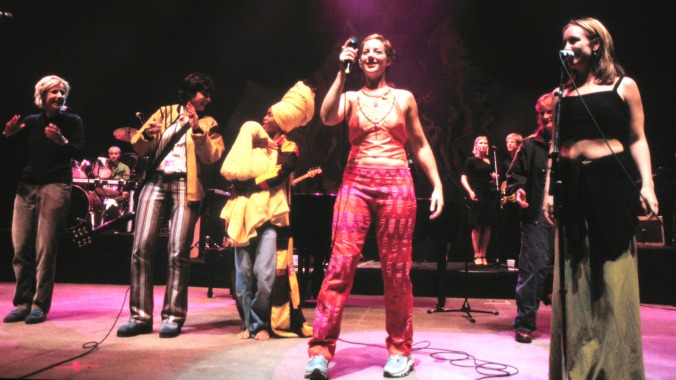Sarah McLachlan, Sheryl Crow, and many, many more offer the definitive oral history of Lilith Fair

Lilith Fair was only around in earnest for three years—from 1996 to 1999, though there was a revival in 2010—but the impact of the all-female festival still resounds to this day, if only because, in this festival-choked culture, there isn’t a modern equivalent at the same scale. The touring festival, created in part by songwriter Sarah McLachlan, was a wild success, drawing tens of thousands of fans to each date and raking in more than $52 million once all was said and done (more than $10 million of that was donated to women’s charities). Lilith Fair was also way ahead of its contemporaries in terms of creating an inclusive space for female artists. “It was probably one of the first ‘safe spaces’ in the history of the entertainment industry,” recalls songwriter Nelly Furtado, a Lilith Fair alum.
Furtado joins a massive roster of names in Vanity Fair’s new oral history of the festival, which includes recollections from McLachlan, Sheryl Crow, Jewel, Liz Phair, Meshell Ndegeocello, and Aimee Mann, among many, many others. The rocky origins of the fest are coupled with the sheer necessity of it in an era when festivals were macho, piss-soaked cesspools. “There were lots of identity-driven and niche-oriented festivals—like so many takes on the idea of ‘alternative,’” says critic Ann Powers. “Tibetan Freedom Concert, Guinness Fleadh, which had an Irish theme. Warped Tour. Ozzfest. But what all these ‘alternatives’ had in common was 90–95% male lineups. Lilith flipped the numbers.” She continues, “That a festival, this thing that is always about rock, about male bonding, even about violence, would re-center itself on women’s comfort and pleasure and self-expression—that felt really rare.”

 Keep scrolling for more great stories from A.V. Club.
Keep scrolling for more great stories from A.V. Club.